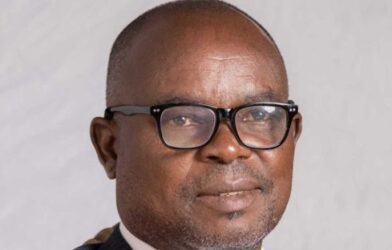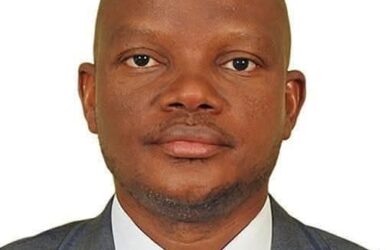113
Commander Onwurah Zonyenuno Chiazor, Nigeria’s first commissioned Naval officer (Royal Canadian Navy, 1957) takes a final bow
Atuma, an agrarian community in Oshimili North Local Government Area in Delta State is not a particularly big community, and any first-time visitor can easily attest to this. But the town is well-known for heroism and other admirable qualities like diligence, humility and courage.
Unsurprisingly, dignity, that ultimate gift from God, is also not in short supply in Atuma. However, one man, Navy Commander Onwurah Zonyenuno Chiazior, an indigene of the town who passed on recently, exemplified the virtues of heroism, courage and adventure. He was indeed the archetype of the Atuma spirit. And his life, interestingly, is like a good book that every young person must read for life’s lessons.
Chiazor who attended College of Immaculate Conception, CIC Enugu and Washington Memorial Grammar School, Onitsha, where he obtained his School Certificate as a teen, completed his secondary education on record time.
In 1948, he left the shores of Nigeria for a great life that awaited him in the Canadian Navy. Before joining the navy in Canada, he had completed his first MB in medicine but he eventually abandoned health sciences for the sea and the adventures therein.
Indeed, Chiazor lived that good life of adventure, comfort and fulfilment until his life took a new turn. That unforgettable moment came when he encountered in 1958, some First Republic Nigerian politicians in a story that developed like an episodic plot in a tragic drama. Leaders of the National Council of Nigerian Citizens, NCNC, had visited Canada a few years before Nigeria’s independence. While in Canada, ostensibly to understand the country’s robust government system and also brainstorm on Nigeria’s future, Chaizor who played a major role in the comfort and safety of the visiting Nigerian delegation got in the mix. In Vancouver where the meetings held, Chiazor ran into Dennis Osadebe, leader of the delegation and other prominent First Republic politicians like Mathew Mbu and Jereton Mariere. Osadebe who thought Chiazor was an African-American officer was ecstatic when he discovered that Chiazor was from Atuma, a town that is a few kilometres from Asaba, his ancestral home. It was therefore easy to convince the young officer on the need to return to Nigeria and help in building and indigenizing the Nigerian new Navy. Chiazor obliged and as they say, the rest is now history.
Chiazor began a new life in Nigeria that completely changed his dreams and hope in the Canadian Navy where a great future accomplishment and progress was only a matter of time. No doubt, the sailor lived to regret his decision to return home at the peak of his career in a foreign country.
Since his exit at the ripe age of 96, Atuma has literally been in mourning for obvious reasons. The sailor was indeed a symbol of freedom, togetherness and hope for his people and many young professionals in the armed forces before tragedy struck. Regrettably, after achieving so much for Nigeria with his knowledge and experience from Canada, the sailor sailed into the trouble waters of Naval politics and witch-hunt. What began like a joke took a frightening dimension and landed Chiazor in big trouble. As the officer in charge of supply, allegations of misappropriation came to the knowledge of the military high command during Chiazo’s tenure. A court martial led to his indictment and his unceremonious exit from the Navy. Though Chiazor eventually engaged the services of a big law firm in Lagos that reversed the controversial naval judgement, he lived with the stain for the rest of his life.
His younger brother and another younger sister (both septuagenarians), speak with enthusiastic praise about a brother who will remain unforgettable for many reasons. His brother, Pius Onyejebose Chiazor, a retired secondary school principal describes his brother as a great man with an unusual liberal disposition. According to him, his brother’s problems in Nigeria started when he gave a free hand to those working under him. His subordinates abused the trust and the privileges he gave unconditionally and this landed him in trouble. He had to pay dearly for the sins of his subordinates who betrayed him.
“But this did not in any way detract from his greatness. My brother was a great man. He took life easy. I remember when he was at No.1 Point Road, Aoapa, he used to move around with great Nigerians like General Yakubu Gowon and Alfred Diete-Spiff, another great Naval Officer. They can actually attest to my brother’s simplicity, professionalism and good nature'”. Similarly, his sister, Comfort Ubaka, Née Chiazor, remembers his brother’s good counsel, his good nature, his unimpeachable integrity and his father-figure role in their lives since their father’s death.
Before death finally came, Chiazor, the quintessential Naval Officer was sick for a very long time. During those acutely depressing years, the sailor was abandoned by Nigeria, a country he gave his all. Eventually when he died, the Navy also denied him that usual conventional participation and final honour given to officers of his rank. According to Pius his younger brother, there were no emissaries, or any direct participation by the Navy during the burial ceremony. Chiazor was also denied the privilege of the symbolic military uniform, military boots and corresponding rank for a dead officer during burial ceremonies. Navy’s full participation and the customary gun salute which is an inalienable military right was also missing during the elaborate burial rites in his home town.
All these, naturally did not go down well with many people, especially those who still remember his contributions to the making of the Nigerian Navy. He actually mentored a generation of ratings and young Naval officers back in the day. He also brought Innovation to an arm of the military that was relatively new shortly before independence. Chiazor, a man of history, was commissioned a Sub-Lieutenant in the Royal Canadian Navy by Queen Elizabeth 11 before Akinwale Wey who eventually became the first Nigerian Chief of Naval Staff. This exemplary naval officer who is credited with lowering the British Union Jack at independence was also Aidè de Camp (ADC) to Dr. Nnamdi Azikiwe, Nigeria’s First president.
In spite of everything, one thing is sure about this departed sailor. He will continue to live in the minds of his people in Atuma and those he came in contact with.












Comments are closed